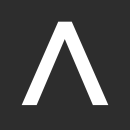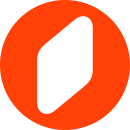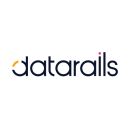It’s understandable that — after the Covid-19 pandemic, the subsequent Great Resignation and current economic anxieties — experienced professionals may be looking for a fresh start.
Employment in computer and information technology occupations is projected to grow much faster than the average across all occupations from 2021 to 2031, according to the Bureau of Labor Statistics. The same report estimates 682,800 new tech jobs expected over the next decade, and not enough talent to meet demand.
For those looking to shift careers, tech is an appealing opportunity.
But it can be scary to consider throwing a senior role away to start back on square one. It’s intimidating to enter a field with entirely new languages, jargon and endless specializations. Imposter syndrome runs rampant.
Thankfully, there are employers who offer a landing pad for career-switchers looking to break into tech.
Take, for instance, Carrot Fertility, which is fully remote and hiring in New York. Its engineering team includes an ex-dancer, a CPA and an art printer.
“It’s staggering how quickly these individuals have grown as software developers by asking the right questions, learning how to learn and loving what they do. I’m so proud of the progress they’ve made!” said Senior Engineering Manager Dan Cleary.
Built In NYC connected with Cleary and leaders at Nomad Health, Boingo Wireless and Datarails for more insight into how these local companies support newcomers to the industry.
Carrot Fertility is a fertility healthcare and benefits provider for employers and health plans.
Describe the current makeup of your team. What kind of unique experiences are represented there?
I am so privileged to work with such a brilliant and passionate group of people. Our engineering team includes folks whose occupation prior to Carrot was in a completely different universe! From dancer to CPA to art printer, we’ve had the privilege of hiring people with a variety of professional experiences. Many of them are alumni of software bootcamps, which provide graduates with a solid foundation to launch them into their engineering careers.
Our engineering team includes folks whose occupation prior to Carrot was in a completely different universe!”
What are the steepest learning curves for new hires who come from outside your industry?
For most people, it is incredibly difficult to ramp up on the technical aspects of software engineering due to an ever-changing landscape and how different the tech stacks are from company to company. That even goes for experienced developers — one can imagine the difficulty for folks entirely new to the industry!
In addition, folks new to software engineering often deal with the added pressure of imposter syndrome, even when they are crushing it. While imposter syndrome can affect people throughout their careers, it is magnified when diving into a completely new industry.
How does your company onboard and support new hires who come from outside your industry?
Every new Carrot employee attends Carrot University, a full-fledged course that educates them about our mission, operations and provides additional information on fertility healthcare overall. In addition, we’ve invested heavily in refining our engineering-specific onboarding process so that new hires are supported every step of the way. Each new hire is formally assigned an onboarding buddy to pair closely with the new hire throughout their onboarding process. They learn about Carrot’s engineering philosophy, run through our development process and, most excitingly, release a change live to the world within the first two weeks!
To help new team members manage the pressures that come with joining a new company, we have fostered a culture of being supportive and empathetic. A great example is one of our engineers who took initiative to research imposter syndrome and, with managerial sponsorship, hosted a support group meeting on the topic. Since then, this group continues to host a monthly meeting, and it has been a wonderful format for our teammates to have an open dialogue and support each other.
Nomad Health is an end-to-end, self-service digital marketplace for healthcare jobs.
Describe the current makeup of your team. What kind of unique experiences are represented there?
I currently lead a team of 11 product managers and a product director. The team is rich in diversity, experience and tenure. We have a healthy mix of team members from big tech — such as Amazon, LinkedIn and Microsoft — and others from small and medium-sized tech startups and healthcare companies. Our product management team is composed of MBA and non-MBA members with a spectrum of experience spanning from early-career individuals to folks with over 10 years of experience in the field.
What are the steepest learning curves for new hires who come from outside your industry?
As a tech company disrupting healthcare, we live at the intersection of two unique industries. One of the biggest challenges for breaking into tech and a tech-focused role is understanding how technology and software development work and their important role in building solid products. I also see top tech companies incorporate data and metrics into their language of success. To get ahead of the learning curve, invest time in developing a foundational understanding of data and analytics and how they relate to technology.
Invest time in developing a foundational understanding of data and analytics and how they relate to technology.”
Breaking into healthcare is complex and typically requires significant expertise. You must understand what certifications apply to specific healthcare disciplines, such as nurses, physical therapists and ultrasound technicians. Working requirements and specialized knowledge are also needed.
There are so many different permutations to understand the clinical world, especially as it collides with technology. But that’s what makes the problem fun and worth solving!
How does your company onboard and support new hires who come from outside your industry?
At Nomad Health, we offer a formal onboarding program designed to drive productivity at day one. This program includes several recurring 101 sessions to deliver essential industry-specific knowledge to our new employees. We also connect all new hires with onboarding buddies for the first 30 days. Every new hire is paired with someone from a different functional team to help broaden their understanding of the business, company and culture. Additionally, each manager has a robust and individualized onboarding plan that provides our leaders with the tools and resources for success.
Boingo Wireless designs, builds and manages communication technology solutions.
Describe the current makeup of your team. What kind of unique experiences are represented there?
We use our diversity as a competitive advantage. The Boingo Wireless engineering and product development teams come from a wide range of backgrounds. We’re proud of that! We have individuals that bring unique experiences from founding an online learning company to working in the entertainment industry to investment banking. By bringing together different backgrounds and perspectives, we can better define products that meet the needs of our customers in various industries, including transportation, sports, entertainment, healthcare, manufacturing and military.
What are the steepest learning curves for new hires who come from outside your industry?
The biggest challenge for people new to the wireless and telecom industry is understanding the terms and technology. There are a lot of acronyms, abbreviations, standards, technologies and so on. However, one of the beautiful things about our industry is that it’s constantly evolving. So, at Boingo, we’re constantly evolving and educating our team. We’re all learning and innovating together on the job.
We’re all learning and innovating together on the job.”
How does your company onboard and support new hires who come from outside your industry?
Boingo Wireless has a robust new hire support system. We have a program called Boingo Buddies that matches new hires with individuals from different parts of the company to mentor and help the new team member get adjusted to the Boingo culture. So, the new hire not only has their direct manager and team, but also an advocate and support person in a different part of the company. It’s one of my favorite programs. It’s both effective and helps establish an added element of workplace community.
Datarails is a financial planning and analysis platform for Excel users.
Describe the current makeup of your team. What kind of unique experiences are represented there?
Datarails offers a unique opportunity for finance leaders to pivot their career into tech in customer success, sales and product roles. Our customer success, sales and product teams are predominantly made up of certified public accountants, chartered financial analysts or those with financial backgrounds who want to switch careers.
The bright side is: They don’t start from scratch, they use their experience and join the technology side. Our approach is to hire finance pros and train them how to be customer success managers. We believe that building trust with our customers starts with understanding their pain. The fact that our teams faced similar challenges before joining Datarails helps them to build a level of trust and long-term engagement with our customers.
The bright side is: They don’t start from scratch, they use their experience and join the technology side.”
This finance-first hiring enables these teams to be able to speak to our customers and be powerful change agents in their process of empowering our customers. Most of the people working on a day-to-day basis with clients have direct experience with the very manual processes customers are struggling with. They bring both deep technical knowledge and the empathy that cuts through in conversations.
What are the steepest learning curves for new hires who come from outside your industry?
The steepest learning curve is understanding the complexity of finance. If you are not from a finance background, the complex amount of financial processes can be difficult to get your head around. In addition, the level of customization in financial reporting can be difficult — it is not always a one-size-fits-all model, even for businesses in the same sector. This makes it both a challenge but also a very creative role in thinking through customers’ models and processes that will best suit them.
How does your company onboard and support new hires who come from outside your industry?
We have a very thorough onboarding process including training modules on different use cases that the platform provides for customers. We have hands-on exercises as well as ongoing monitoring of their progress by their direct manager.
In addition, all sales and CS calls are recorded on Gong. This allows any employee an instant repository of different use cases and sectors and how our software is helping CFOs, financial planning and analysis teams and accountants. In addition, there is thorough hands-on training, with constant review of all employees’ progress, and use of objectives and key results.













